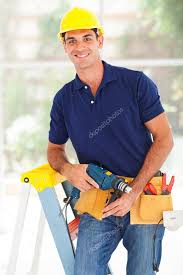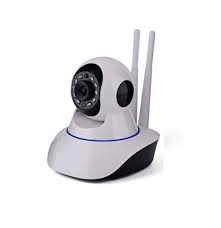CCTV Installer: Ensuring Safety and Security
In today’s fast-paced world, safety and security have become paramount concerns for individuals, businesses, and communities alike. With the rise in criminal activities and security threats, it has become essential to invest in effective surveillance systems. One such crucial component of modern security systems is Closed Circuit Television (CCTV).
CCTV installation plays a pivotal role in deterring crime, monitoring activities, and providing valuable evidence in case of any untoward incidents. A CCTV installer is a trained professional who specializes in the setup and configuration of these surveillance systems.
The role of a CCTV installer extends beyond simply mounting cameras. They possess the technical expertise to design a comprehensive CCTV system tailored to meet specific requirements. This includes determining the optimum camera placement, selecting appropriate camera types (such as dome cameras, bullet cameras, or PTZ cameras), choosing suitable lenses for different areas, and ensuring proper connectivity between cameras and recording devices.
A skilled CCTV installer possesses knowledge about the latest advancements in surveillance technology. They stay updated with industry trends to provide clients with cutting-edge solutions that offer enhanced security features. Whether it’s high-definition video quality, remote viewing capabilities through mobile devices or cloud-based storage options – a professional CCTV installer can guide clients towards the most suitable options for their needs.
Additionally, a competent CCTV installer understands the importance of integrating other security systems with CCTV cameras. This may include access control systems, alarm systems, or even facial recognition software. By seamlessly integrating these technologies, they create a robust security infrastructure that works harmoniously to provide comprehensive protection.
Furthermore, a reliable CCTV installer ensures proper installation and configuration of recording devices such as Digital Video Recorders (DVRs) or Network Video Recorders (NVRs). They take into account factors like storage capacity requirements and data retention policies to ensure uninterrupted surveillance footage recording.
When it comes to maintenance and troubleshooting, a professional CCTV installer is well-versed in diagnosing and resolving technical issues promptly. They conduct routine checks, perform necessary updates, and offer timely support to ensure the smooth functioning of the surveillance system.
Choosing the right CCTV installer is crucial for maximizing the effectiveness of your security investment. Look for reputable professionals with a proven track record, relevant certifications, and positive customer reviews. A reliable installer will not only provide quality installation but also offer valuable advice on system upgrades and future expansions.
In conclusion, a skilled CCTV installer plays a vital role in ensuring safety and security by designing, installing, and maintaining effective surveillance systems. With their expertise and knowledge of the latest technologies, they provide clients with peace of mind knowing that their premises are under constant watchful eyes. Invest in a professional CCTV installer today to safeguard what matters most to you.
Frequently Asked Questions about CCTV Installation
- What qualifications do I need to become a CCTV installer?
- How much does it cost to install a CCTV system?
- What is the best type of CCTV camera for my home or business?
- How long does it take to install a CCTV system?
- What maintenance is required for a CCTV system?
What qualifications do I need to become a CCTV installer?
To become a CCTV installer, certain qualifications and skills are typically required. While the specific requirements may vary depending on the region and employer, here are some common qualifications:
- Technical Knowledge: A solid understanding of CCTV systems, including camera types, lenses, cables, connectors, recording devices (DVR/NVR), and networking fundamentals is essential. Familiarity with IP-based systems and digital video compression formats is also beneficial.
- Education or Training: While formal education is not always mandatory, completing a relevant diploma or degree program in electronics, electrical engineering, or security systems can provide a strong foundation. Additionally, attending specialized training courses or workshops offered by reputable organizations can enhance your knowledge and skills in CCTV installation.
- Certifications: Obtaining industry-recognized certifications can significantly boost your credibility as a CCTV installer. Certifications such as Certified Security Project Manager (CSPM), Certified Security Technician (CST), or Certified Security Systems Engineer (CSSE) demonstrate your expertise and commitment to professional standards.
- Licensing: In some regions or countries, CCTV installers may require specific licenses or permits to operate legally. Research the local regulations and ensure compliance with any licensing requirements applicable to your area.
- Experience: Practical experience is highly valued in this field. Consider gaining hands-on experience through internships, apprenticeships, or working under the guidance of an experienced CCTV installer to develop essential skills related to installation, troubleshooting, maintenance, and system integration.
- IT Skills: As modern CCTV systems often involve network connectivity and digital video management software, having basic knowledge of computer networks and IT troubleshooting can be advantageous.
- Communication Skills: Good communication skills are vital for interacting with clients effectively. As a CCTV installer, you may need to explain technical concepts to non-technical individuals clearly and provide guidance on system usage.
- Problem-Solving Abilities: Being able to identify issues with installations or troubleshoot problems efficiently is crucial. A strong problem-solving mindset and attention to detail are essential traits for a CCTV installer.
Remember, continuous learning and staying updated with the latest advancements in CCTV technology is vital in this field. Keeping abreast of industry trends, attending workshops or seminars, and actively seeking professional development opportunities will help you stay ahead as a competent CCTV installer.
How much does it cost to install a CCTV system?
The cost of installing a CCTV system can vary depending on several factors, including the complexity of the installation, the number of cameras required, the type and quality of cameras chosen, and any additional features or components needed. It is important to note that prices can vary significantly based on location and specific requirements.
As a general guideline, a basic CCTV system with a few cameras and a recording device can start from around INR 10,000 to INR 30,000. However, for larger installations or more advanced systems with higher-resolution cameras, night vision capabilities, remote access features, and professional installation services, the cost can range from INR 50,000 to several lakhs.
It is recommended to consult with professional CCTV installers or security companies who can assess your specific needs and provide accurate cost estimates based on your requirements. They can also offer guidance on selecting the right equipment and ensure proper installation to maximize the effectiveness of your CCTV system.
Keep in mind that investing in a reliable and high-quality CCTV system is crucial for ensuring optimal security and surveillance capabilities. While costs may vary, it is important to prioritize quality and functionality over solely focusing on price when it comes to safeguarding your property or premises.
What is the best type of CCTV camera for my home or business?
Choosing the best type of CCTV camera for your home or business depends on various factors such as your specific security needs, budget, and the area you want to monitor. Here are some common types of CCTV cameras that you can consider:
- Dome Cameras: Dome cameras are popular due to their discreet design and 360-degree coverage. They are commonly used in indoor settings and can be easily mounted on ceilings. Dome cameras often come with features like vandal resistance and infrared night vision.
- Bullet Cameras: Bullet cameras are cylindrical in shape and are suitable for both indoor and outdoor surveillance. These cameras are known for their long-range capabilities, making them ideal for monitoring larger areas such as parking lots or building exteriors.
- PTZ Cameras: Pan-Tilt-Zoom (PTZ) cameras offer flexible coverage as they can rotate horizontally and vertically, allowing you to remotely control the camera’s movement and zoom in on specific areas of interest. PTZ cameras are commonly used in large-scale surveillance systems where active monitoring is required.
- Wireless Cameras: Wireless cameras offer easy installation as they do not require extensive wiring. They use Wi-Fi or other wireless technologies to transmit video signals, making them suitable for situations where running cables is challenging.
- Indoor Cameras: Indoor cameras are designed specifically for indoor use, providing clear video footage within confined spaces like offices or homes. They come in various shapes and sizes, including dome, bullet, or cube designs.
- Outdoor Cameras: Outdoor cameras are built to withstand harsh weather conditions and provide reliable surveillance outdoors. These cameras often have features like weatherproof housing, infrared night vision, and wide-angle lenses to cover larger areas effectively.
- Thermal Cameras: Thermal cameras use heat signatures instead of visible light to capture images. These cameras are useful in scenarios where detecting heat signatures is crucial, such as identifying intruders at night or monitoring temperature-sensitive environments.
- Wide Dynamic Range (WDR) Cameras: WDR cameras are designed to handle challenging lighting conditions, such as areas with bright backlighting or high contrast. They capture clear images by balancing the exposure levels in different parts of the frame.
It is recommended to consult with a professional security provider or CCTV installer who can assess your specific requirements and recommend the most suitable camera types for your home or business. They can consider factors like lighting conditions, area coverage, and any specific security concerns to ensure you choose the best CCTV camera for your needs.
How long does it take to install a CCTV system?
The time required to install a CCTV system can vary depending on several factors, including the complexity of the installation, the size of the premises, and the number of cameras involved. On average, a basic CCTV installation for a small residential property or a small business can typically be completed within a day or two.
However, for larger installations with more cameras and complex requirements, the installation process may take longer. It may involve additional tasks such as running cables, setting up network connections, configuring recording devices, and fine-tuning camera angles and settings.
A professional CCTV installer will assess your specific needs and provide you with an estimated timeframe for the installation process. They will consider factors such as site survey results, equipment availability, any necessary permits or permissions required, and any potential challenges that may arise during the installation.
It’s important to note that while the physical installation of cameras and wiring may be completed within a relatively short timeframe, configuring and optimizing the system for optimal performance may require additional time. This includes setting up motion detection settings, adjusting camera angles for maximum coverage, configuring remote access options, and testing all components to ensure they are functioning correctly.
To ensure a smooth and efficient installation process, it is recommended to work with a professional CCTV installer who has experience in handling similar projects. They will have the expertise to plan and execute the installation in a timely manner while ensuring that all necessary steps are taken to achieve optimal functionality and security.
Remember that investing in professional installation not only saves you time but also ensures that your CCTV system is installed correctly and operates effectively from day one.
What maintenance is required for a CCTV system?
Proper maintenance is essential to ensure the optimal performance and longevity of a CCTV system. Here are some key maintenance tasks that should be carried out regularly:
- Camera Inspection: Regularly inspect all cameras for physical damage, loose connections, or signs of wear and tear. Clean camera lenses and housings to ensure clear image quality.
- Check Power Supply: Verify that all cameras, recording devices, and power supplies are receiving adequate power and functioning correctly. Replace any faulty power supplies or cables.
- Cleanliness: Keep camera lenses clean from dust, dirt, or smudges that may affect image clarity. Use appropriate cleaning tools and solutions recommended by the manufacturer.
- Check Camera Positioning: Ensure that camera angles and positions have not been altered or obstructed by objects such as plants, banners, or construction materials. Adjust if necessary to maintain optimal coverage.
- Review Recording Settings: Regularly review recording settings on the DVR/NVR to ensure continuous operation and sufficient storage capacity. Adjust settings as needed based on storage requirements.
- Test System Functionality: Periodically test the functionality of the entire CCTV system, including cameras, recording devices, monitors, and any integrated components such as alarms or access control systems.
- Firmware Updates: Stay updated with the latest firmware releases for cameras and recording devices provided by the manufacturer. Install updates to benefit from improved performance, bug fixes, and security enhancements.
- Storage Management: Monitor available storage space on the recording device (DVR/NVR) regularly to avoid running out of space for new recordings. Consider implementing an automated backup system to prevent data loss.
- Network Security: Ensure that network connections used for remote viewing are secure by implementing proper encryption protocols (e.g., HTTPS) and strong passwords for user accounts associated with the CCTV system.
- Maintain Documentation: Keep a record of maintenance activities performed on the CCTV system, including dates of inspections, repairs, firmware updates, and any other relevant information. This documentation can be useful for troubleshooting and future reference.
It is recommended to engage professional CCTV maintenance services periodically to conduct in-depth inspections, perform system health checks, and address any potential issues that may arise. Remember that regular maintenance not only ensures the reliability of your CCTV system but also enhances its effectiveness in providing continuous surveillance and security.




